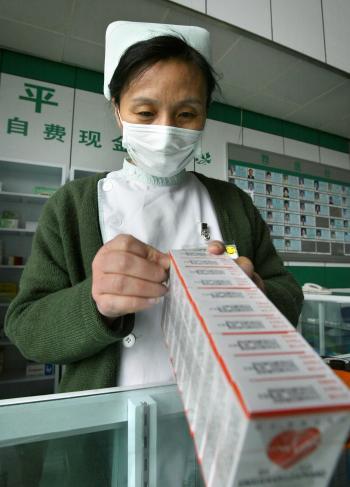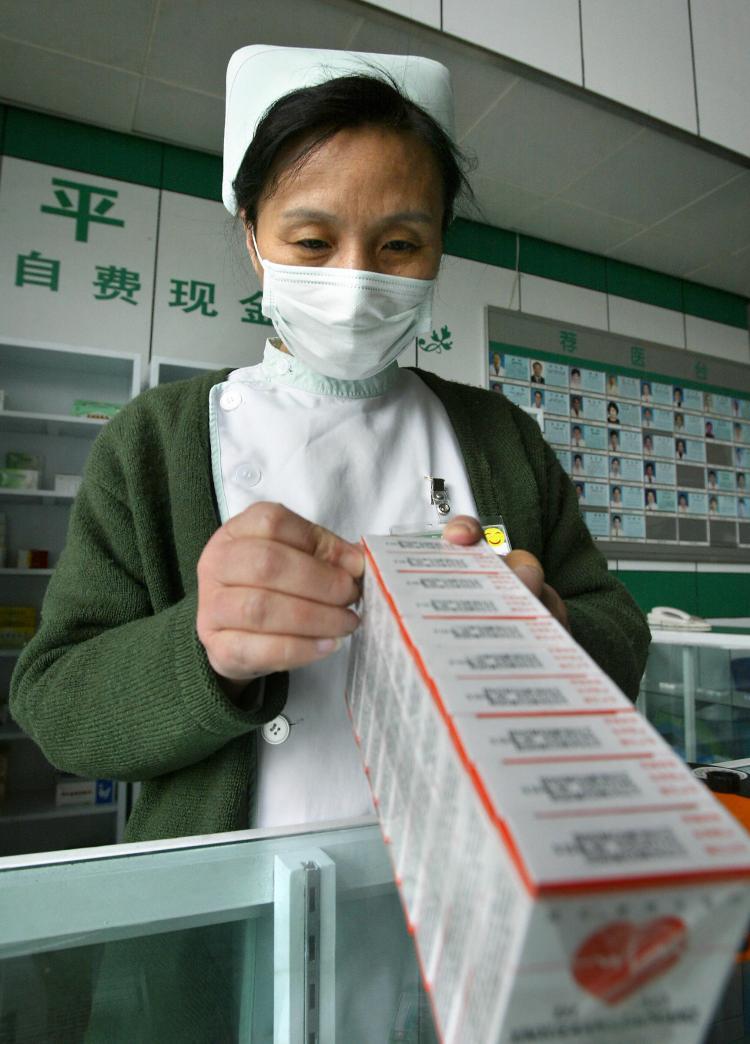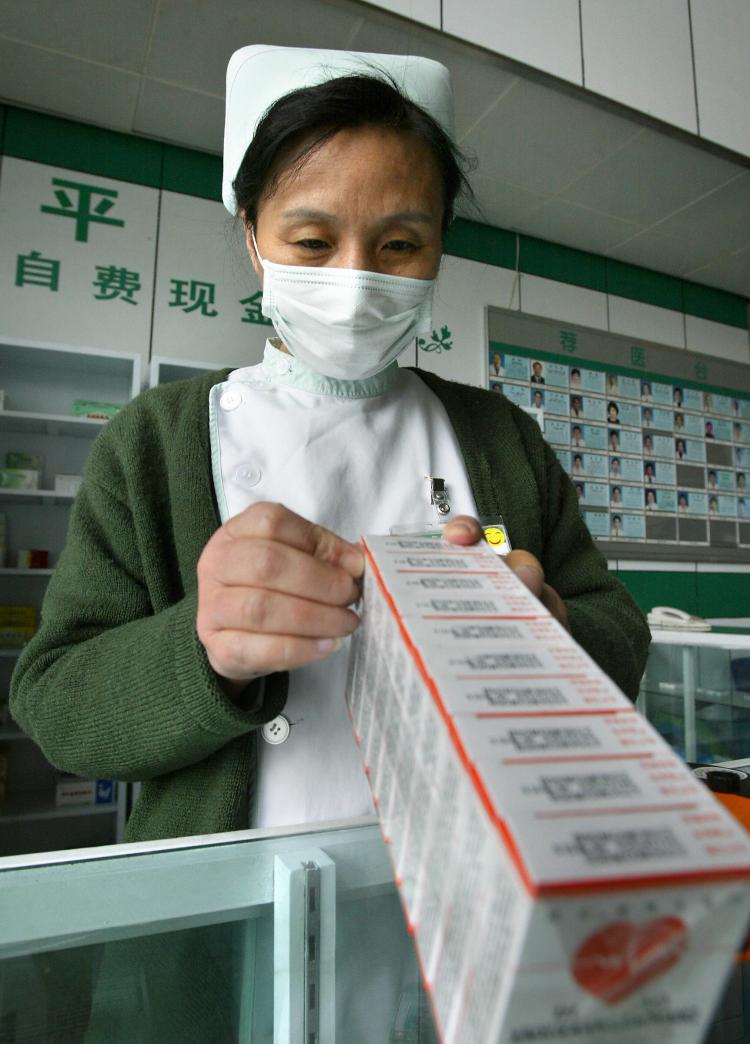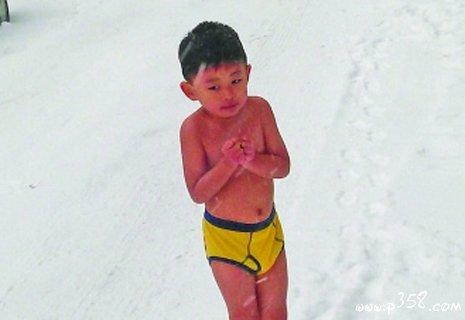There has been much coverage by Western media over the last two years about the health risks posed by “Made in China” products, including Chinese export of counterfeit medicines. Chinese counterfeit medicines may have already caused hundreds—if not thousands—of deaths outside of China.
Less is known, however, of the harm of contaminated goods to the Chinese people or of the steps being taken to regulate the industries. One man in China, however, provides insight into this issue.
Dubbed by the Chinese media as China’s foremost combatant against counterfeit medicine, Gao Jingde says that he has discovered through his investigations that two-thirds of China’s drug stores sell counterfeit medicine.
Gao, who graduated from the Anhui Traditional Chinese Medical College, has been working in the field of medicinal science for many years.
He started to investigate the counterfeit medicine issue in 2004 after he took some tablets produced by the Zhejiang Jinhuatailai Drug Company for his liver disease. The pills caused some ill side affects in Gao who, with his medicinal expertise, was soon able to determine that the medicine contained in the tablets was fake.
Says Gao, “I’ve seen counterfeit traditional Chinese medicine and Western medicine. Some of these can cause great harm to the nervous system and urinary system, including the kidneys.”
His grassroot investigations consisted of searching drug stores and hospitals on his own for counterfeits. When found, he would buy the bad medicine and report it to the government. In nearly four years, Gao has reported 289 cases of counterfeit medicine, 87 of which occurred in Nanjing.
Gao holds that the reason for the rampant problem of counterfeit medicines in China is, aside from criminality within the pharmaceutical industry, that the State Food and Drug Administration has shirked its responsibility of properly regulating the industry.
Indeed, according to Gao, the government’s usual response when he reported a counterfeit was paltry. A fine of 100 to 4,000 yuan ($15 to $580) would be levied against the responsible companies. For even a moderately sized pharmaceutical company, such a fine would amount to less than a slap on the wrist.
Gao’s efforts in exposing these crimes have, unsurprisingly, brought him into harms way.
Recently, Gao was attacked by four men outside of the Nanfang University Medical Center, a hospital he had recently exposed in an investigation.
Since the incident, Gao has been seeking treatment for the injuries he sustained in the attack, which include partial paralysis of the right side of his body. His doctor said the condition could become permanent if it does not improve in six months.
Furthermore, it has been over 10 days since the incident occurred, but police are still ignoring the case. Gao told The Epoch Times that he suspected the thugs who beat him were hired by hospital authorities.
Less is known, however, of the harm of contaminated goods to the Chinese people or of the steps being taken to regulate the industries. One man in China, however, provides insight into this issue.
Dubbed by the Chinese media as China’s foremost combatant against counterfeit medicine, Gao Jingde says that he has discovered through his investigations that two-thirds of China’s drug stores sell counterfeit medicine.
Gao, who graduated from the Anhui Traditional Chinese Medical College, has been working in the field of medicinal science for many years.
He started to investigate the counterfeit medicine issue in 2004 after he took some tablets produced by the Zhejiang Jinhuatailai Drug Company for his liver disease. The pills caused some ill side affects in Gao who, with his medicinal expertise, was soon able to determine that the medicine contained in the tablets was fake.
Says Gao, “I’ve seen counterfeit traditional Chinese medicine and Western medicine. Some of these can cause great harm to the nervous system and urinary system, including the kidneys.”
His grassroot investigations consisted of searching drug stores and hospitals on his own for counterfeits. When found, he would buy the bad medicine and report it to the government. In nearly four years, Gao has reported 289 cases of counterfeit medicine, 87 of which occurred in Nanjing.
Gao holds that the reason for the rampant problem of counterfeit medicines in China is, aside from criminality within the pharmaceutical industry, that the State Food and Drug Administration has shirked its responsibility of properly regulating the industry.
Indeed, according to Gao, the government’s usual response when he reported a counterfeit was paltry. A fine of 100 to 4,000 yuan ($15 to $580) would be levied against the responsible companies. For even a moderately sized pharmaceutical company, such a fine would amount to less than a slap on the wrist.
Gao’s efforts in exposing these crimes have, unsurprisingly, brought him into harms way.
Recently, Gao was attacked by four men outside of the Nanfang University Medical Center, a hospital he had recently exposed in an investigation.
Since the incident, Gao has been seeking treatment for the injuries he sustained in the attack, which include partial paralysis of the right side of his body. His doctor said the condition could become permanent if it does not improve in six months.
Furthermore, it has been over 10 days since the incident occurred, but police are still ignoring the case. Gao told The Epoch Times that he suspected the thugs who beat him were hired by hospital authorities.





